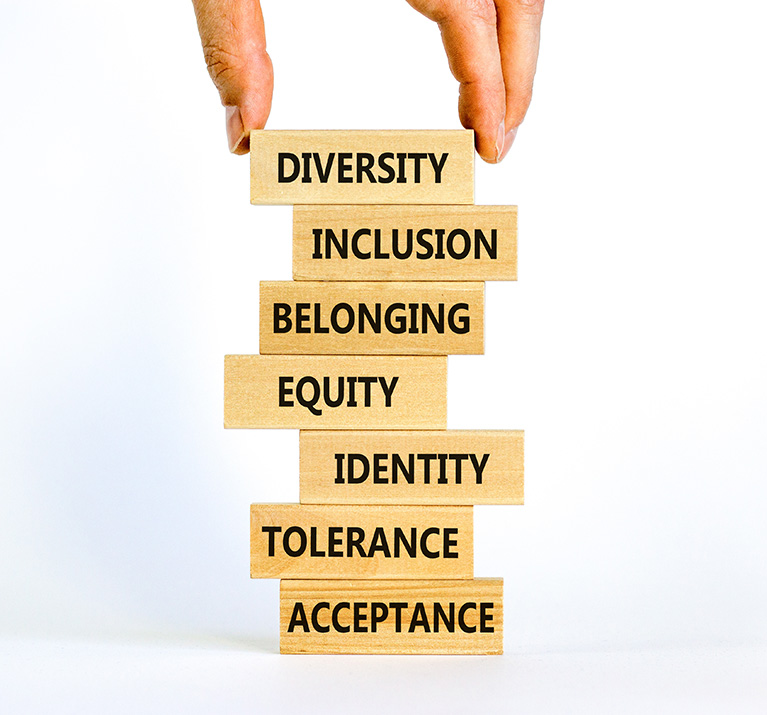Racial Equity Audits Can Help Bridge the Gap Between Words and Actions in DEI
Closing the gap between well-meaning diversity efforts and true equity and inclusion is difficult. Racial Equity Audits are a step in the right direction toward creating accountability between values and outcomes.
March 23, 2022 at 02:00 PM
8 minute read
 "I wish I could say that racism and prejudice were only distant memories … We must dissent from the indifference. We must dissent from the apathy. We must dissent from the fear, the hatred and the mistrust … We must dissent because America can do better, because America has no choice but to do better." —Justice Thurgood Marshall
"I wish I could say that racism and prejudice were only distant memories … We must dissent from the indifference. We must dissent from the apathy. We must dissent from the fear, the hatred and the mistrust … We must dissent because America can do better, because America has no choice but to do better." —Justice Thurgood Marshall
Workplace discrimination is prohibited by Title VII of the Civil Rights Act of 1964. Notwithstanding this federal law, the underlying jurisprudence applying it, and its state and local analogues, fair and equitable treatment of employees remains elusive for many organizations. According to a 2019 Glassdoor survey, 61% of U.S. employees reported that they have witnessed or experienced workplace discrimination, and stark racial and gender disparities in professional advancement persist at every level in every major industry. Furthermore, evidence suggests that some of the most common interventions to promote diversity do not work as intended.
The 2020 murder of George Floyd and the ensuing public outcry jolted the nation—and the racial equity movement—in ways unseen in decades. As intolerance for inequities in policing and the workplace grew, corporations across the nation pledged their commitment to transform their hiring, promotion, and retention practices to foster inclusion for personnel at all levels.
This content has been archived. It is available through our partners, LexisNexis® and Bloomberg Law.
To view this content, please continue to their sites.
Not a Lexis Subscriber?
Subscribe Now
Not a Bloomberg Law Subscriber?
Subscribe Now
NOT FOR REPRINT
© 2025 ALM Global, LLC, All Rights Reserved. Request academic re-use from www.copyright.com. All other uses, submit a request to [email protected]. For more information visit Asset & Logo Licensing.
You Might Like
View All
Here’s Looking at You, Starwood: A Piercing the Corporate Veil Story?
7 minute read
Chancery Claims Linking Fox Management to Defamation Liability Clear Hurdle
4 minute read
Turbocharge Growth: How Technology Will Shape a Successful 2025

Fatal Shooting of CEO Sets Off Scramble to Reassess Executive Security
5 minute readLaw Firms Mentioned
Trending Stories
- 1Ticket-Fixing Scheme Results in Western NY Judge's Resignation—for a Second Time
- 2Legal Community Mourns the Loss of Trailblazing Judge Dorothy Chin Brandt
- 3Delaware Supreme Court, Reversing Chancery, Lowers Review Standard for TripAdvisor Move to Nevada
- 4Haynes and Boone Expands in New York With 7-Lawyer Seward & Kissel Fund Finance, Securitization Team
- 5Upstart Insurer That's Wowing Industry Hires AIG Legal Exec to Help Guide Global Expansion
Who Got The Work
J. Brugh Lower of Gibbons has entered an appearance for industrial equipment supplier Devco Corporation in a pending trademark infringement lawsuit. The suit, accusing the defendant of selling knock-off Graco products, was filed Dec. 18 in New Jersey District Court by Rivkin Radler on behalf of Graco Inc. and Graco Minnesota. The case, assigned to U.S. District Judge Zahid N. Quraishi, is 3:24-cv-11294, Graco Inc. et al v. Devco Corporation.
Who Got The Work
Rebecca Maller-Stein and Kent A. Yalowitz of Arnold & Porter Kaye Scholer have entered their appearances for Hanaco Venture Capital and its executives, Lior Prosor and David Frankel, in a pending securities lawsuit. The action, filed on Dec. 24 in New York Southern District Court by Zell, Aron & Co. on behalf of Goldeneye Advisors, accuses the defendants of negligently and fraudulently managing the plaintiff's $1 million investment. The case, assigned to U.S. District Judge Vernon S. Broderick, is 1:24-cv-09918, Goldeneye Advisors, LLC v. Hanaco Venture Capital, Ltd. et al.
Who Got The Work
Attorneys from A&O Shearman has stepped in as defense counsel for Toronto-Dominion Bank and other defendants in a pending securities class action. The suit, filed Dec. 11 in New York Southern District Court by Bleichmar Fonti & Auld, accuses the defendants of concealing the bank's 'pervasive' deficiencies in regards to its compliance with the Bank Secrecy Act and the quality of its anti-money laundering controls. The case, assigned to U.S. District Judge Arun Subramanian, is 1:24-cv-09445, Gonzalez v. The Toronto-Dominion Bank et al.
Who Got The Work
Crown Castle International, a Pennsylvania company providing shared communications infrastructure, has turned to Luke D. Wolf of Gordon Rees Scully Mansukhani to fend off a pending breach-of-contract lawsuit. The court action, filed Nov. 25 in Michigan Eastern District Court by Hooper Hathaway PC on behalf of The Town Residences LLC, accuses Crown Castle of failing to transfer approximately $30,000 in utility payments from T-Mobile in breach of a roof-top lease and assignment agreement. The case, assigned to U.S. District Judge Susan K. Declercq, is 2:24-cv-13131, The Town Residences LLC v. T-Mobile US, Inc. et al.
Who Got The Work
Wilfred P. Coronato and Daniel M. Schwartz of McCarter & English have stepped in as defense counsel to Electrolux Home Products Inc. in a pending product liability lawsuit. The court action, filed Nov. 26 in New York Eastern District Court by Poulos Lopiccolo PC and Nagel Rice LLP on behalf of David Stern, alleges that the defendant's refrigerators’ drawers and shelving repeatedly break and fall apart within months after purchase. The case, assigned to U.S. District Judge Joan M. Azrack, is 2:24-cv-08204, Stern v. Electrolux Home Products, Inc.
Featured Firms
Law Offices of Gary Martin Hays & Associates, P.C.
(470) 294-1674
Law Offices of Mark E. Salomone
(857) 444-6468
Smith & Hassler
(713) 739-1250






